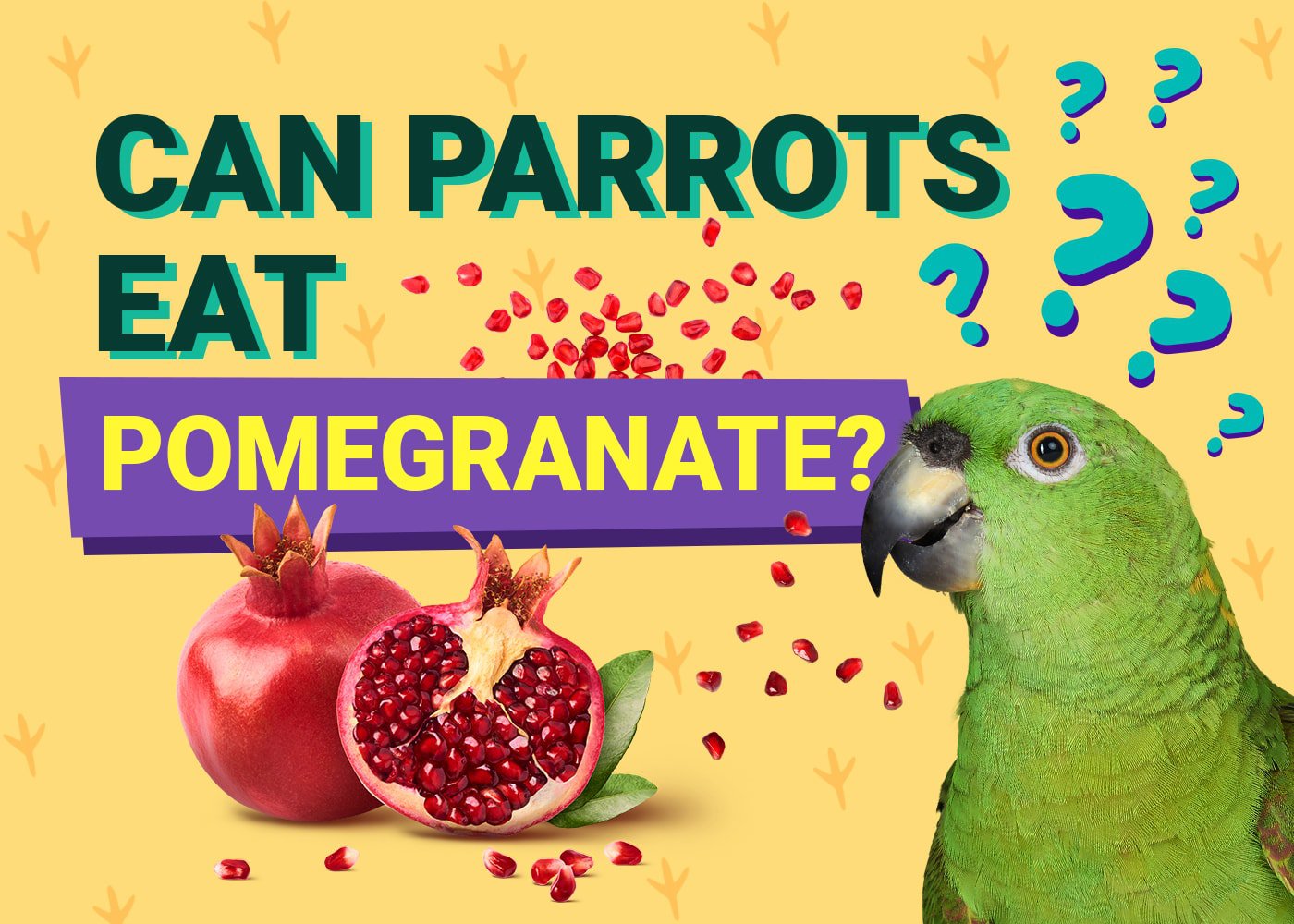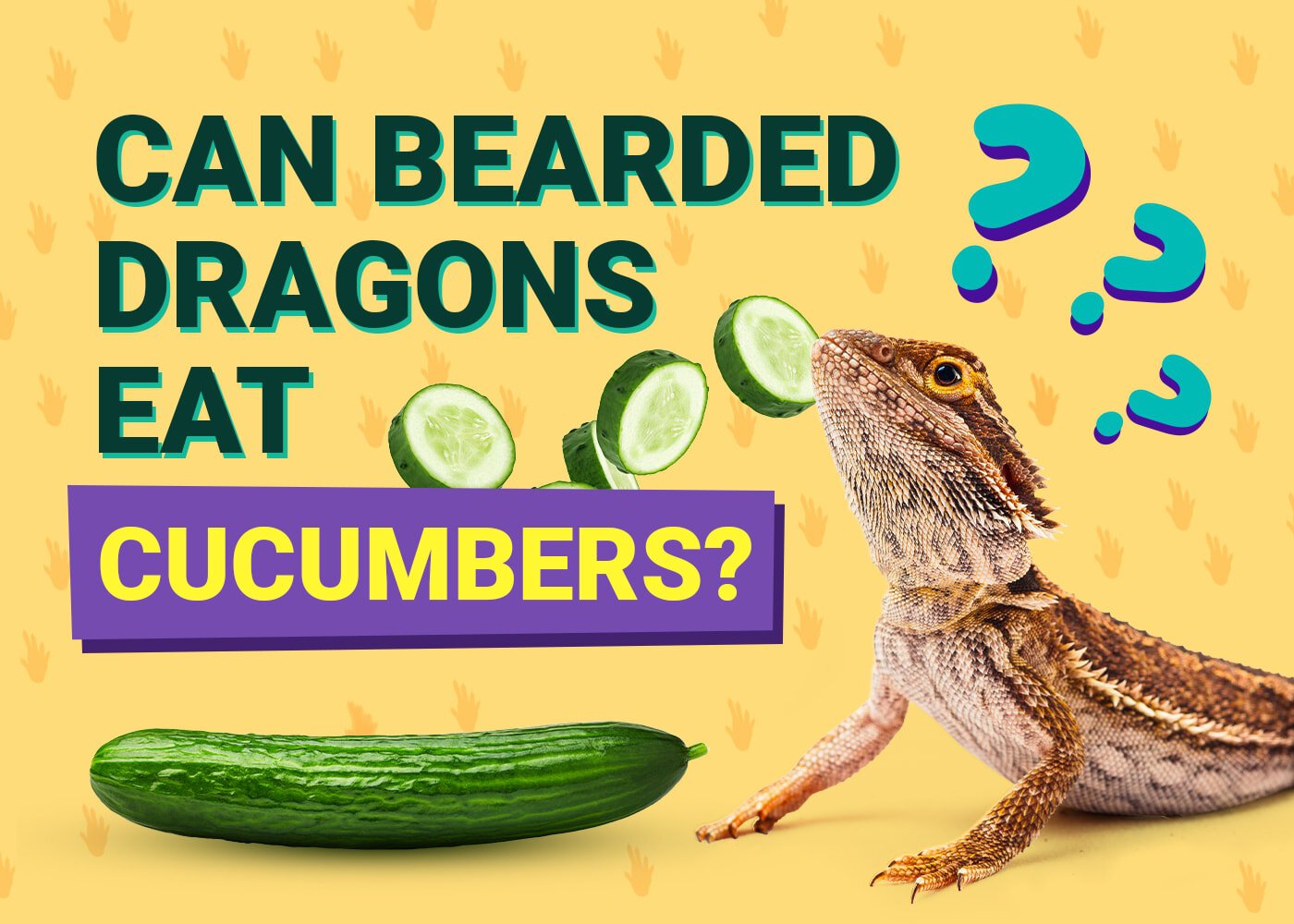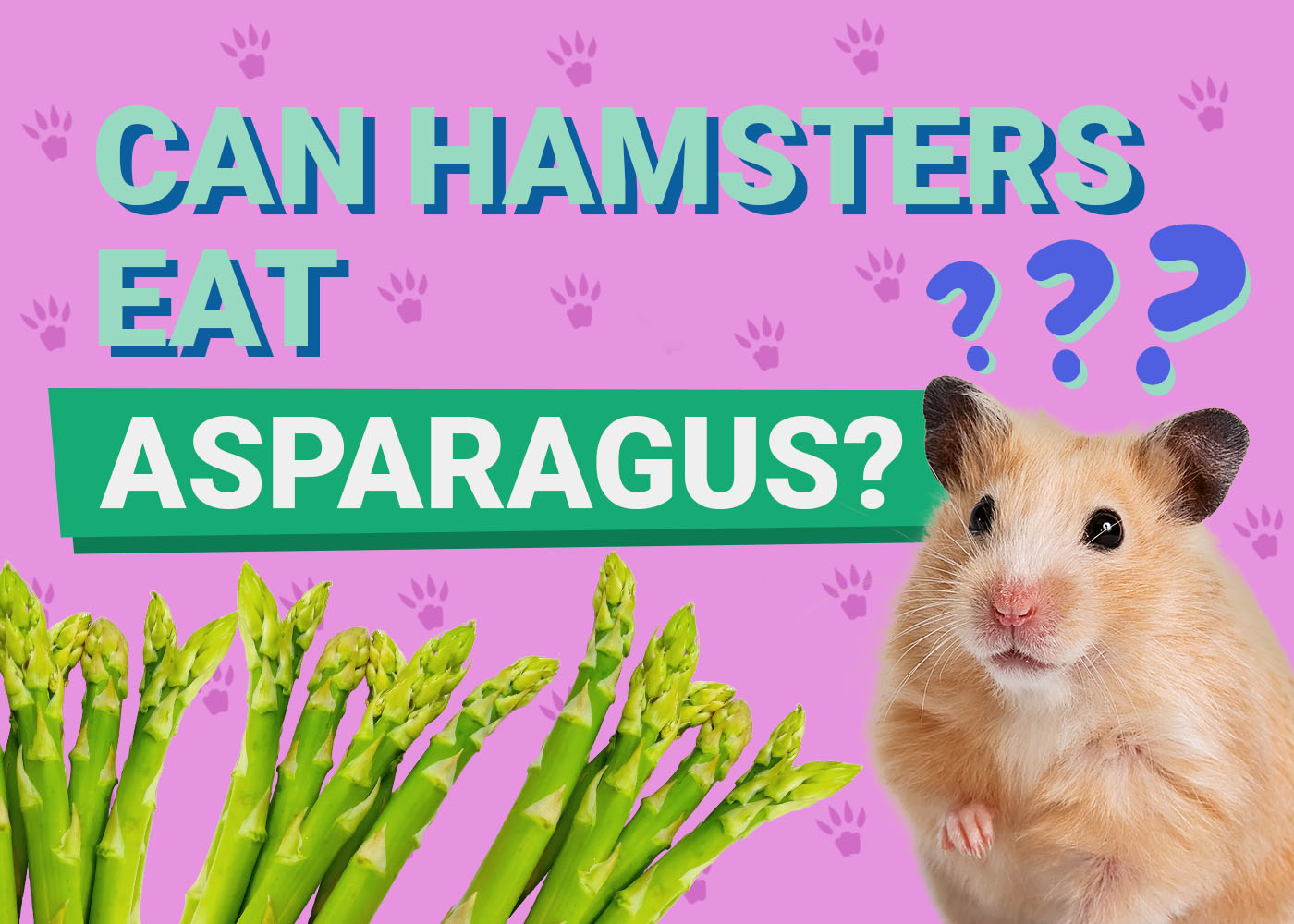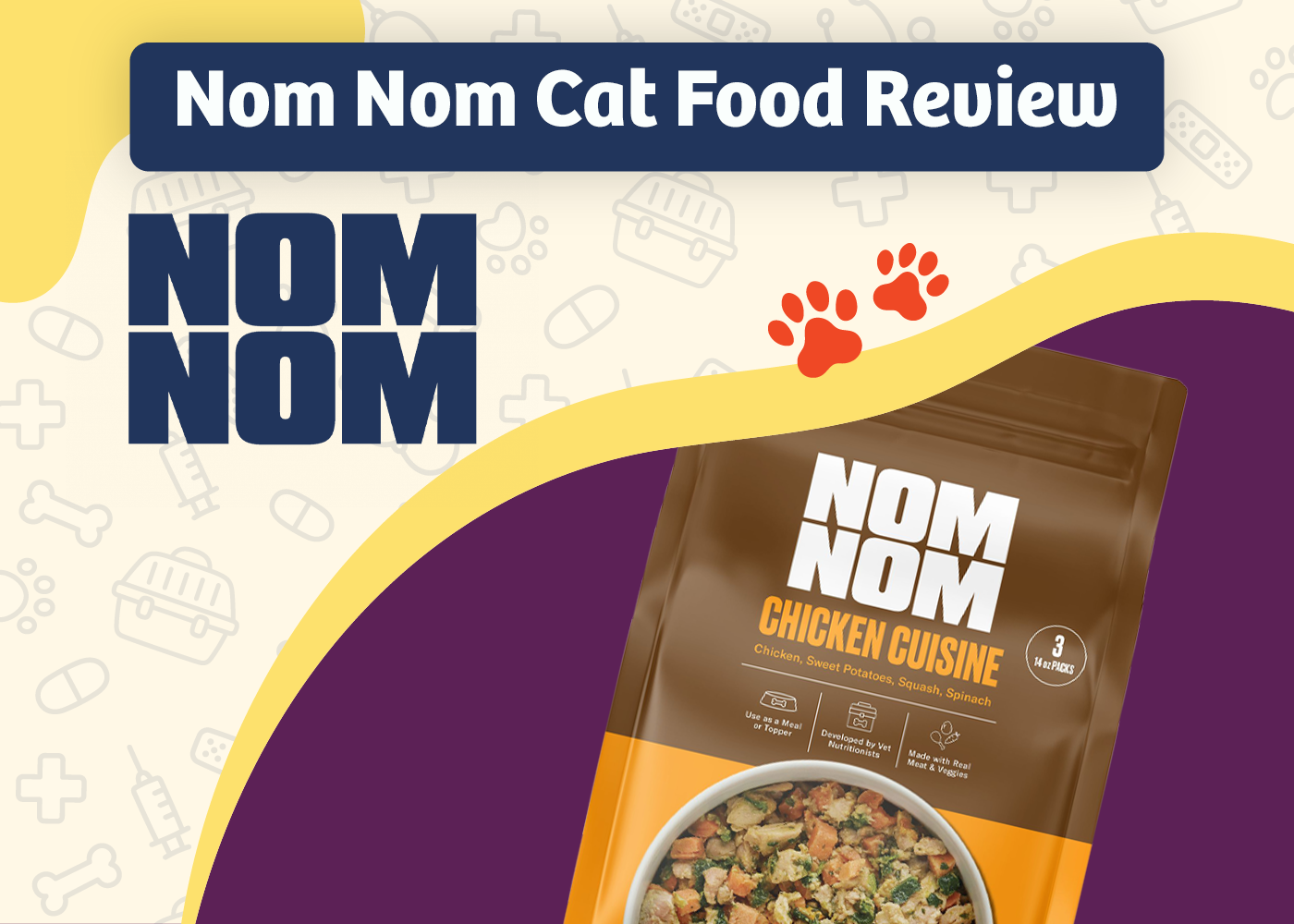Click to Skip Ahead
Pets love to beg for human food, and parrots are no strangers to this behavior! Some of them can even ask for food with words humans can understand! But are these foods safe for our pets’ consumption?
The good news is that pomegranate is safe for parrots to eat! Like many other fruits, pomegranates may provide certain nutrients which are beneficial for your pet.

Pomegranates & Parrots
Many fruits are safe for parrots, and pomegranates are no exception to this rule. However, despite fruits being very appealing for most pet parrots, excessive quantities of fruits are not desirable in most pet parrots’ diets. Parrots that are frugivores (fruit eaters), such as macaws or nectarivores (nectar and pollen eaters) are more likely to readily consume pomegranate than granivores (seed eaters) such as budgies.
Though fruits and vegetables are often categorized together when one thinks of fresh produce, their roles in a pet parrot’s diet are drastically different. Vegetables are in short, much better than fruits for a parrot because they provide a much broader spectrum of nutrients than fruits.
On the other hand, fruits are mainly water and sugar (in the form of carbohydrates) with some vitamins and minerals. Pomegranate is no exception to this 1.
The most common vitamin in most fruits (including pomegranate) is vitamin C. This makes fruits very appealing for us as humans, and for some pets that cannot make their own vitamin C (such as guinea pigs).
Since healthy parrots can produce their own vitamin C, they actually don’t need this vitamin supplemented in their diet. Vitamin C may be beneficial for a young, growing, or an unwell parrot. However, an unwell parrot’s health may take a turn for the worse if they were suddenly offered a high amount of fruits (assuming they even feel like eating anything while they’re sick).
As far as fruits are concerned, berries are preferred over other fruits, as they often contain far less sugar than other fruits and are very high in antioxidants. However, it is worth noting that almost all present-day veterinary guidelines for parrots do recommend fruits in some amount for pet parrots. As such, they shouldn’t be considered treats, but essentials that need to be offered sparingly. This definitely justifies the inclusion of pomegranate into your parrot’s diet.
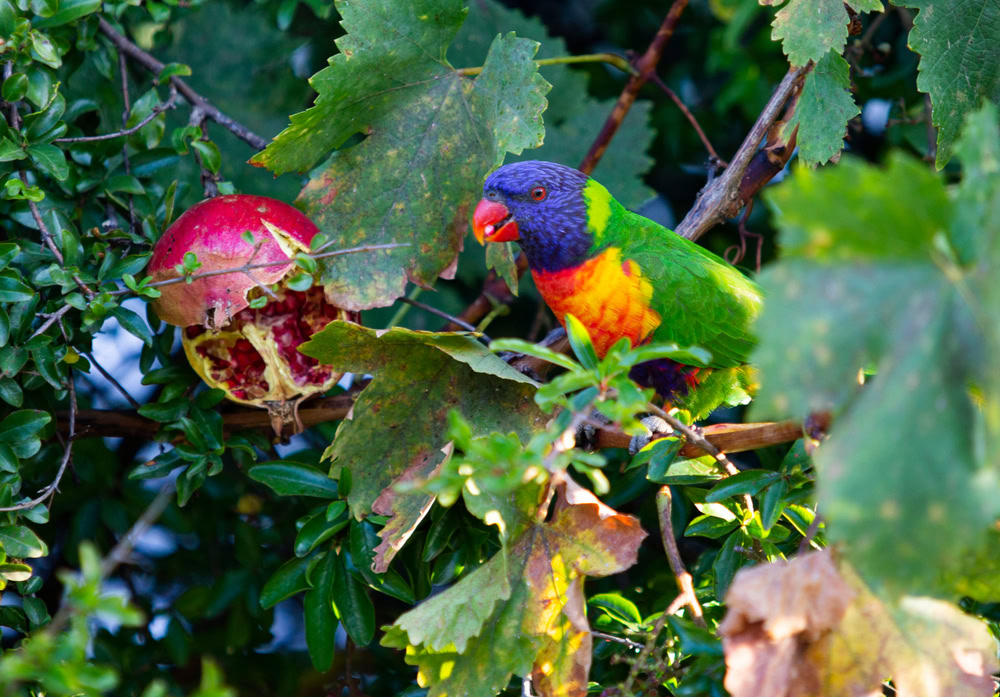
Parrot Nutrition: The Basics
Parrots can eat a variety of human-grade fresh fruits and vegetables. Produce can provide both a tasty treat and a healthy addition to their regular diet.
Vets recommend a diet of high-quality pellets which provide the optimal nutrition for parrots. Using one of these formulas, parrot parents don’t have to worry about whether their parrot is getting the necessary nutrients to stay strong.
Pellet food can be bland, though. So, it’s not unusual for parrot parents to give their parrots fresh fruits and vegetables as a treat since they’re not only tasty but also healthy!
Parrots need a varied diet, including plant material and animal proteins, to maintain optimal health.
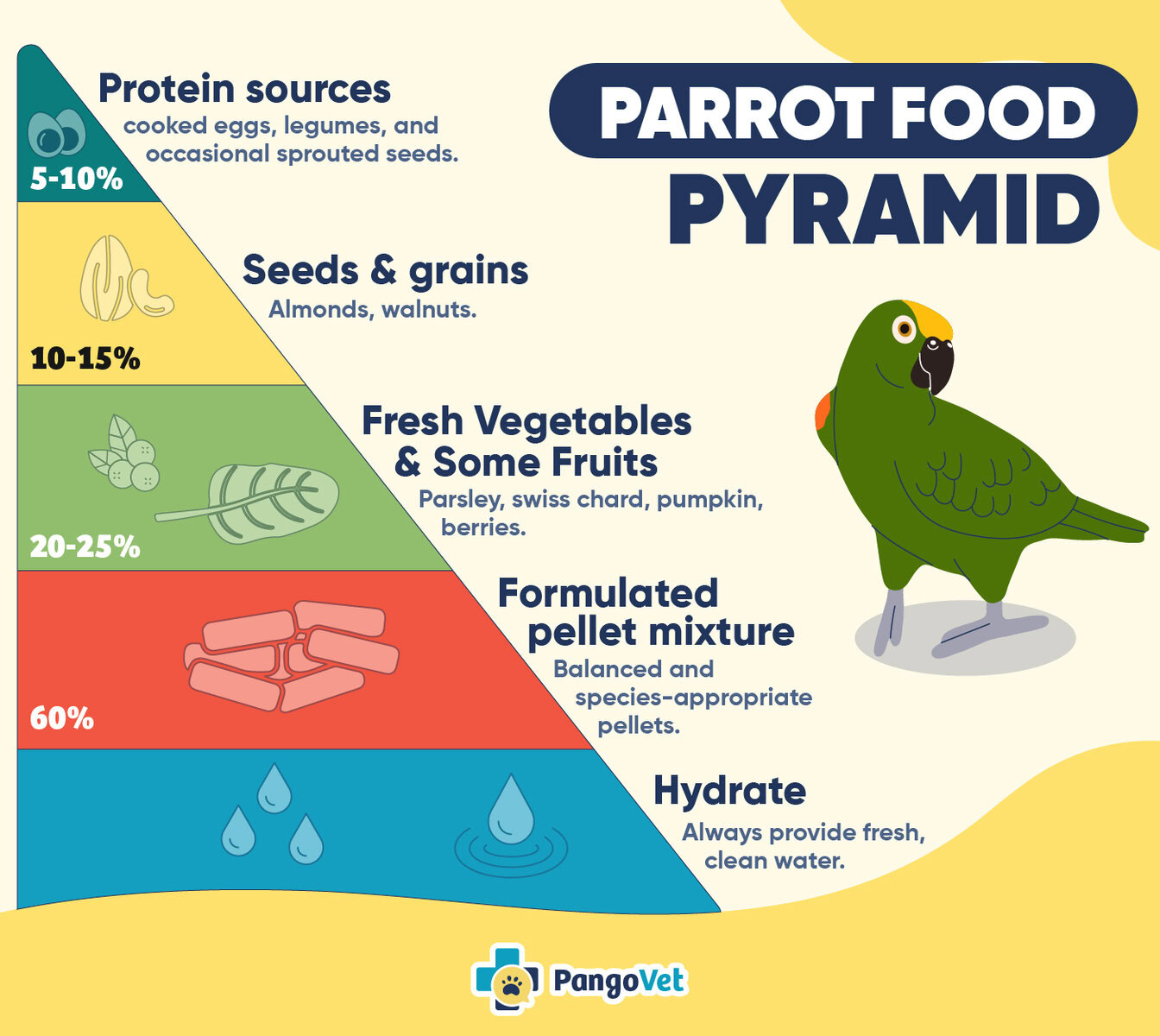
Commercial Seed Mixes
You’ll also see a variety of seed mixes available when shopping for parrot foods. While these may be tempting, they’re often full of dust and the seeds included don’t necessarily represent balanced nutritional values for your parrot. These mixes are often high in fat content due to the overabundance of sunflower seeds contained in the compounds. Vets recommend against them for these reasons.
Some commercial seed mixes have begun to include pellets in their mixes to provide better overall nutrition for the parrots consuming them, but some parrots may eat around the pellets. So, if you’re using one of these mixes as their primary diet, make sure you monitor their eating to ensure they’re eating all of the food.
Fruits & Vegetables: Yay or Nay?
Fruits and vegetables are a great addition to your parrot’s diet. Pomegranates are safe for parrots to eat. Aside from pomegranates, leafy greens, asparagus, broccoli florets, citrus fruits, and bananas are all delicious treats to feed to your parrot.
It should be noted that some fruits with seeds and pits can be unsafe for parrots since those seeds and pits contain a toxic cyanide compound. Apples, pears, cherries, plums, apricots, peaches, and nectarines should have the seeds and pits removed before feeding them to your bird.
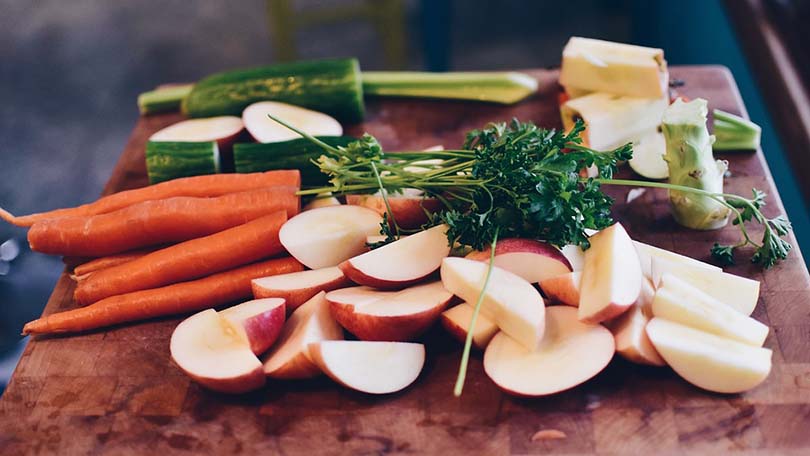
Nuts
While parrots tend to love nuts, not all nuts represent good nutrition for them. Very few nuts and seeds are toxic to parrots, but nuts are often high in fat content. Too many nuts can cause parrots to gain too much weight too quickly and cause health problems later in life.
Nuts make a great treat and reward and can be utilized to train your parrot to behave well. You should be careful which nuts you feed your parrot, though. While most parrots adore peanuts, improperly stored peanuts can contain mold, which can give the bird a lung infection if consumed. Peanuts should be given sparingly, if at all, and should always be shelled when given to the bird.
Any nuts given to your parrot should be unsalted. Salt can be toxic to parrots as it can upset the electrolyte balance in a bird’s system and kill them.
Almonds, walnuts, macadamia nuts, brazil nuts, and hazelnuts are all great treats to feed your parrot!
Animal Proteins
Animal proteins should be consumed in moderation if given to parrots. Chicken bones and small amounts of lean meats and fish can be good additions to your parrot’s diet and help them stay healthy and strong.
Emulating a Wild Diet
Wild parrots are opportunistic feeders that will eat what’s available to them in their environments. There are plenty of foraged foods that parrot parents can feed to their feathered friends. It’s essential to ensure that all foraged foods are washed thoroughly before feeding to ensure that no pathogens make their way into your parrot’s diet by accident.
Dandelions may be an annoying weed for your garden, but they’re a great source of nutrition for your parrot. The entire plant has nutritional benefits for parrots. Loro Parque, one of the world’s largest parrot sanctuaries, cultivates dandelion growth for the parrots in their care!
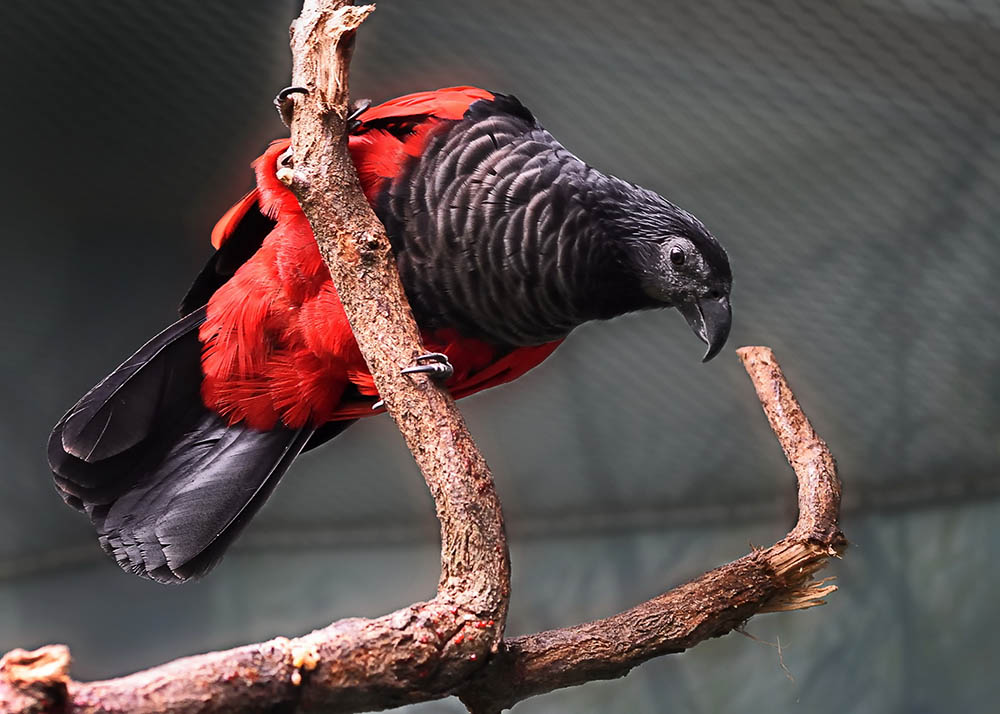
Unsafe Foods for Parrots
Not many foods are toxic for parrots, but a few very notable exceptions to that rule. Coffee, tea, and anything containing caffeine can kill your parrot. Salty foods are also toxic to parrots. Garlic and onions can irritate the parrot’s mouth and throat and cause ruptures in their red blood cells, giving them anemia. Chocolate contains theobromine, the same compound toxic to cats and dogs, and can kill them.
Toxic plants like nightshade and yew are no-gos for parrots. Avocado is also harmful to parrots and shouldn’t be fed to them.

Conclusion
Parrots have unique nutritional needs just like people, and we must take great care in maintaining the health and happiness of the parrots in our care. Ensuring that their diets are appropriately varied and balanced to provide them with optimal nutrition is one of the essential parts of parrot ownership!
Next on your reading list:
Featured Image Credit: Mick2270, Shutterstock
